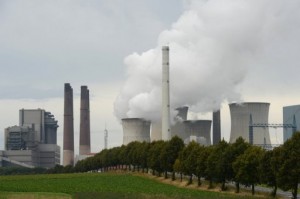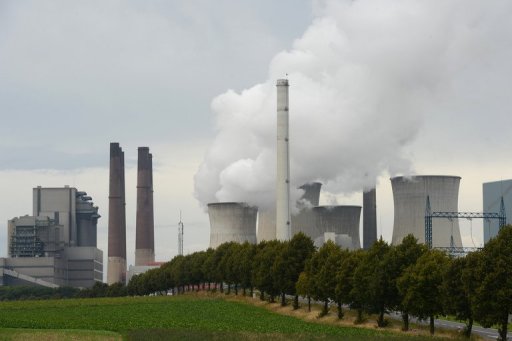
By Mariette le Roux
Doha (AFP) – UN climate talks on Monday entered their final week amid rows over the Kyoto Protocol and funding for poorer countries, despite fresh warnings of the peril from greenhouse gases.
After six days of wrangling, nearly 200 nations remained far apart on issues vital for unlocking a global deal on climate change, said delegates at the talks in Doha, Qatar’s capital.
Poor countries were insisting Western nations sign up to deeper, more urgent cuts in carbon emissions under Kyoto after the pact’s first round of pledges expires at year’s end.
They were also demanding the rich world commit to a new funding package from 2013 to help them cope with worsening drought, flood, storms and rising seas.
Both questions are key to a new treaty that must be signed by 2015 and enter into force in 2020 to roll back global warming.
“What gives me frustration is that we are very far behind what science tells us we should be doing,” UN Framework Convention on Climate Change (UNFCCC) chief Christiana Figueres told a press conference, adding though that she retained “hope.”
Some delegates began to voice fears of deadlock ahead of ministerial-level talks, starting on Wednesday, to crown the annual negotiations under the UN banner.
A new study warned Sunday that Earth could be on track for warming above five degrees Celsius (nine degrees Fahrenheit) by 2100 – at least double the 2C (3.6 F) limit enshrined by the UN.
It follows other research which said polar ice-cap melt had raised sea levels by nearly half an inch (11 millimetres) over the last two decades, and that Arctic ice shrivelled at an unprecedented rate in 2012.
The head of the International Energy Agency (IEA), Maria van der Hoeven, warned on Monday that limiting warming to 2C (3.6 F) “is becoming more difficult and more expensive with every passing year.”
“Without concerted action soon, the world is on track for a much warmer future with possibly dire consequences,” she said in a press release.
“Time is running out to prevent the loss of entire nations and other calamities in our membership and around the world,” added the Alliance of Small Island States (AOSIS), gathering nations badly at risk from warming-induced rising sea levels.
Despite the warnings, observers say the Doha talks have become stuck.
One problem is discord within the European Union (EU) on whether individual nations should be allowed to hold on to unused greenhouse gas emissions quotas – so-called “hot air.”
These leftover allowances, estimated to total about 13 billion tonnes of CO2, were allotted under the first leg of Kyoto.
EU member Poland and some other countries insist on retaining their tradeable “hot air” into the follow-up Kyoto period – a move vehemently opposed by the developing world and island states who say this will further raise greenhouse gases to dangerous levels.
The Doha talks are meant to set a timeframe and country targets for the second period of Kyoto, which binds about 40 rich nations and the EU to curbing emissions but excludes the two biggest polluters — the US, which refused to ratify it, and China.
Another area of bust-up is money.
Developed countries are also being asked to show how they intend to meet a promise to raise funding for poor nations’ climate mitigation plans to $100 billion per year by 2020 – up from a total $30 billion in 2010-2012.
The developing world says it needs a total of $60 billion from now to 2015 – but no commitments have been made.
